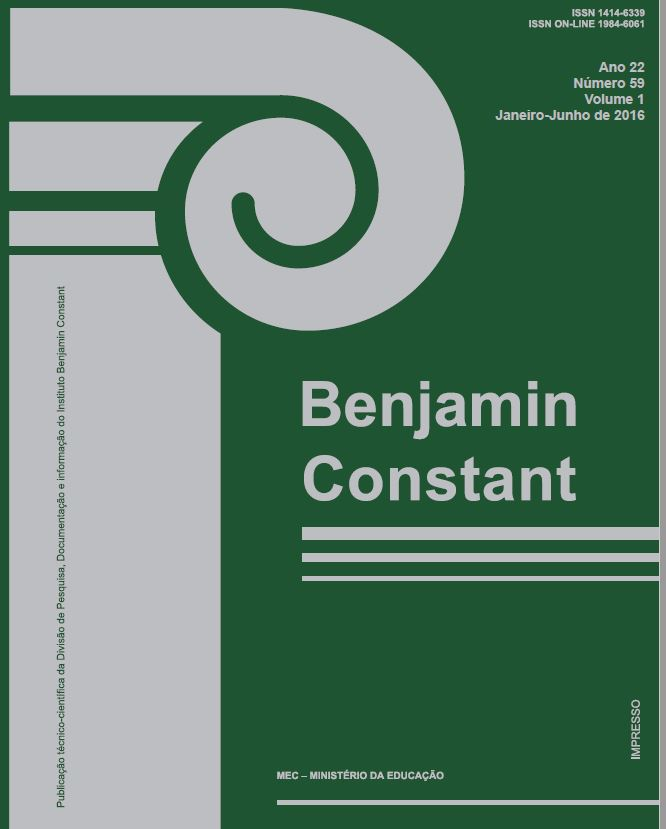Clues on teaching Braille literacy: an analysis of the mistakes found on text production
Abstract
Achieving Braille literacy is essential not only for the constitution of critical subjects but also for social inclusion. However, literacy learning is a complex process that requires offering didactic situations which promote active participation and constant reflection on language and its roles. Having the perspective that mistakes are inherent to a learning process and that they often provide clues on the learners former hypothesis, this study aims to analyze the mistakes found on 21 students’ Braille text production, enrolled on first to third year at Instituto Benjamin Constant, a institution specialized on the visually impaired. The students were required to write a made up story and the mistakes found were divided on either orthographic mistakes or those related to the Braille System, a distinction necessary for teaching purposes. It was found, in all grades, a greater amount of Braille mistakes than orthographic ones, evidencing the complexity of that symbolic system. Among the orthographic mistakes, the predominant type was the phonologically acceptable errors, which suggests that those youngsters have a good level of phonological analysis ability, although still struggling on the orthographic context choice. The results analysis allows suggesting reflexive practices that will contribute to linguistic knowledge construction as well as the appropriation of literacy.





.png)
